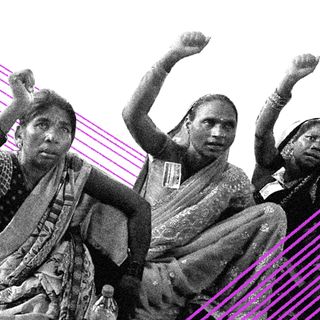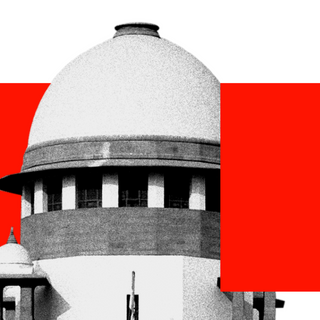The Allahabad High Court last week remarked that under the Indian legal system, “a convicted person also has the right to pursue his study and appear in examination from the Jail to enter into the mainstream of social life.” The court was hearing a plea by a rusticated law student of the Aligarh Muslim University who petitioned for being allowed to complete his course, LiveLaw reported. The Court, presided by a single-judge bench of Justice Neeraj Tiwari, directed the University to allow the petitioner to complete his exams as not doing so could potentially harm his career.
In September 2021, the Supreme Court declared that handing out punishment was not the only way of delivering justice. In a similar vein, the Allahabad High Court in this case observed that “punishment given to any person should have been reformative and not prejudicial.” It is important here to note that universally, harsher punishments have often not succeeded in stopping or reducing crime. Even when they are meant to serve as examples, as in the case of capital punishment for rapes and other rarest of rare crimes, they have largely failed as a deterrent to future crime.
In the present case, The Allahabad High Court noted that the petitioner was not convicted under any law yet — and that even if he was he had a right to complete his studies — the court further commented that “the petitioner is a young student, and he must have been given a chance to correct himself and choose (the) right path of life, if deviated(,) and denial would frustrate the aim of reformative punishment.”
Related on The Swaddle:
Tell Me More: Talking Prison Reform and Alternative Forms of Justice With Saumya Dadoo
In a judgment made in 2000, the Supreme Court of India ruled that a prisoner in the country was entitled to all the fundamental rights enshrined in the constitution. In an earlier judgment in 1978, the court had noted that though a prisoner’s right to liberty under articles 19 and 21 was severely restricted, it wasn’t entirely static. These rulings ensure that a prisoner has as much a right to study as a person free from the confines of jail. Indeed, if the aim of prisons is to reform convicts to help them lead better lives once they are free, then it is crucial that the justice meted out to them is reformative and educative instead of merely punitive. As the Allahabad High Court noted in the aforementioned hearing, a singular focus on punishment would only instill fear among prisoners without actually encouraging them to reform their behaviors.
According to a US-based report from January 2016 on correctional education programs in American prisons, those who enrolled in any such program were 43 percent less likely to return to prisons. At the same time, convicts without education are less likely to find employment opportunities or social support systems once they are free, increasing their chances of committing crimes and returning to jail. Thus, ensuring that prisoners have access to education is essential to justice embodying a reformative character.
Earlier this year, Dasvi, a Netflix film starring Abhishek Bachchan in the lead, focussed on the story of a convicted politician embarking on a journey to finish his high school education. Soon after, reports emerged that nine prisoners in Agra Central Jail — after viewing the film in a screening inside the prison — were inspired to sit for their own board exams. The Allahabad High Court’s remarks, if followed in spirit, can then go a long way in transforming the idea of justice in the country.




